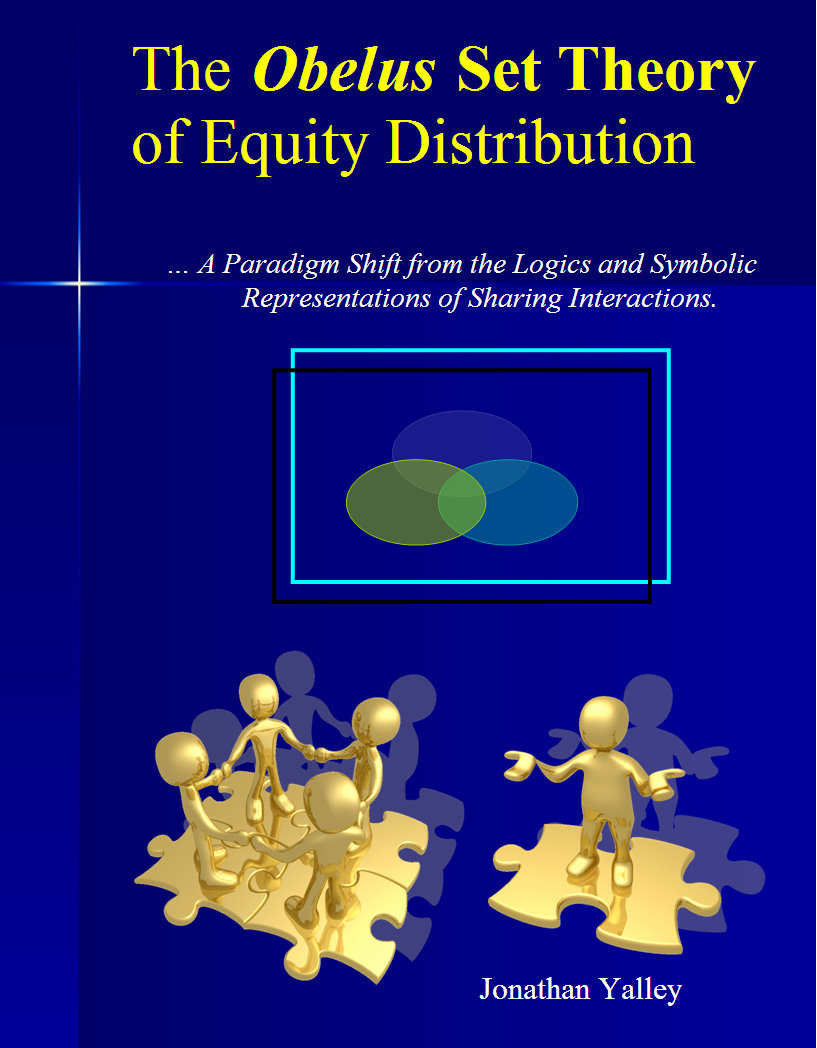Contemporary quasi-analytic approach to division lacks comprehensive representation of the process of sharing. This leads to arithmetic conundrums such as infinity, indeterminate forms and undefined forms such as division by zero. However when evinced as a holistic analysis under equity distribution, the universality of sharing interactions as processes of basic arithmetic division results. In the end, physically-flavored and meaningful end results are derived through congenial and realistic qualitative and quantitative analysis. As a result of the natural and realistic analysis provided in this book, The Obelus Set Theory of Equity Distribution, the said underpinning conundrums in mathematics are hitherto very well understood. In general, the interactive process of sharing can be represented by the arithmetic operation commonly called division. It involves the separation of an object into two or more parts. When subjected to quantitative and qualitative analysis under a condition of equity distribution, the process of sharing does indeed result in an outcome that is not only realistic but also natural to understand.
The formalization of the mathematics of distributional sets namely distributum (items for distribution), distribient (or recipients) and the surrogate sets via the law of equity distributions allows for an extremely good understanding for myriad mathematical conundrums. Some of the rewarding consequences encapsulated by this evolved holistic approach to universal sharing interactions outlined in this book includes distribution density, abstract field axioms, law of equity distribution, distributive and non-distributive numbers, set surrogation, set resonance, unit donor principle, propensity (which is a measure of natural inclination towards a particular action), mapping statistics, the continuum hypothesis, point continuum, analysis of pi, the concept of redistribution, hypo and hyper-distributions and set resonance equilibrium. In order to show the ease of direct application of the novel concept(s) and principles revealed in this book, one of the basics of marketing mix, that is distribution channels, is analyzed. Here, the concepts of universal linear distributions and marginal distribution allow for an excellent way to both micro and macro-manage distribution processes as a whole. In general, the managerial processes outlined can well be adopted for other practical scenarios.
Finally, from a theoretical perspective, the concepts of the fundamental process of sharing are used as a vehicular probe to provide a simple solution to a very fundamental quest in computer science namely the search for a proof of equality or non-equality between the class of P (which involves problems solvable by conventional computers in time polynomial to the input size) and NP class (which requires one to find a solution of a problem where it is feasible to quickly verify that the solution is correct). The solution to this fundamental P- NP problem has challenged the core of theoretical computer science and contemporary mathematics to date. The dichotomy between the abstraction of the real world into the mathematical world of abstract relationships and the specialization of the mathematical world into specificity of things sincerely begs the following pertinent question: Can any part or whole of the mathematical world of abstract relationships exist without any instantiation in the real world? It turned out that P is equal to NP! This only confirms the universality of intelligent adaptation.
Topics included are:
- Distribution Density, Law of Equity Distribution, Non-Distributive Numbers, Distributive Numbers, Abstract Field Axioms
- Set Surrogation, Propensity, Unit Donor Principle, Set Resonance, Set Resonance Equilibrium,
- Mapping Statistics, Continuum Hypothesis, Point Continuum, Analysis of Pi, Hypo-Hyper Distributions
- Universal Linear Distributions, Marginal Distribution, Distribution Channels Analysis, P Class versus NP Class.



